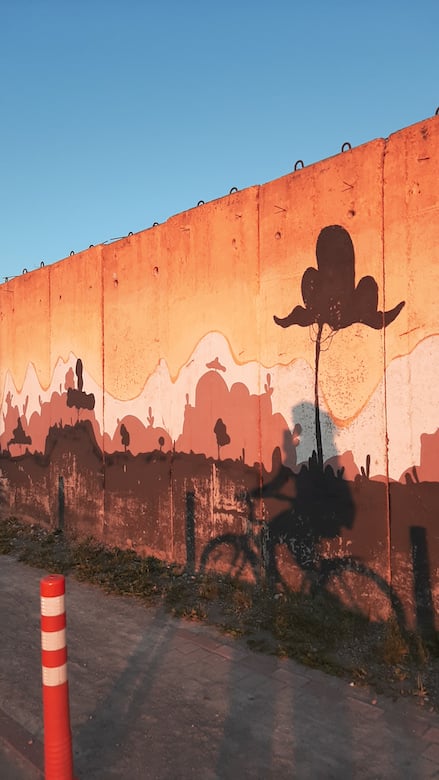
So many words could describe the current administration’s actions. Among the most salient might be retributive, erratic, careless, unconstitutional. But when it comes to the immigration actions being implemented, cruelty seems to be the point. We have the disappearance of 45 immigrants in New Mexico who are unaccounted for; the removal of hundreds of migrants to a torturous prison in El Salvador—75% of whom have no criminal record beyond their immigration offense; the whisking away of legal-immigrant students by masked agents into unmarked cars, without warrants, and on and on. For each of these stories, dozens more exist. As of today, the president’s defying a Supreme Court decision that he must return from that Salvadoran prison a man the administration admits was deported by mistake.
Because the administration does not have funds to carry out mass deportations, cruelty is being used as a weapon—to urge immigrants to self-deport.
They Will Be Missed
Those carrying out these actions are clearly using immigrants as scapegoats. What are they trying to cover over with their scapegoating? Meanwhile, many everyday Americans support these actions because of relentless anti-immigrant messaging over decades; they do so in the name of “legal immigration”—seemingly unaware of how immigration law makes legal immigration from certain countries almost impossible.
I fear the trauma being inflicted on millions of our immigrant neighbors. But I also despair of the moral injury being done to us as a people.
Those involved in anti-immigrant policies, along with their supporters, seem heedless of how mass deportation (self- or otherwise) will affect communities and the economy. Yet we saw a glimpse of the impact in upstate New York last week when a woman and her three children were picked up and hauled off to a detention center halfway across the country and a large majority of their small town turned out to protest their apprehension. Under this pressure, the administration returned the family.
Immigrants are our neighbors. When they are gone, they are missed.
Mercy Over Law
Some Americans like to say that people apprehended by immigration authorities have committed a crime by being here undocumented, and thus, they must be removed—with or without due process. “We must have laws,” they say. These people seem to justify cruelty in the name of letter-of-the-law policies for immigrants. When this thinking comes from church-going folks, it reminds me how Jesus approached law. On multiple occasions, Jesus taught that mercy trumps law. Being correct and “righteous” was never the point for him. In one powerful example in Luke 13:10-17, Jesus put the freedom and relief of a woman he illegally healed on the Sabbath—a woman trapped in suffering for eighteen years—so far above any law that he blasted the leader who reminded him the action was illegal. Jesus’ response? You show mercy to your donkey on the Sabbath. Why wouldn’t I show mercy to this woman, a child of God?

Wholeness Comes First
Jesus taught and incarnated a value system that should be the concern of people calling themselves Christian. According to these values, wholeness in people and relationships comes first. Upon reading the passage in Luke, I am reminded of some haunting voices I heard in the first term of our president. The distraught voice of an eleven-year-old whose father, a poultry plant worker in Mississippi, was taken in a massive deportation raid. Or that of a Honduran mother who was told a gang would kill her son if she didn’t pay their demanded price—so she came to the US border desperately seeking asylum because she has family here, because she viewed it as her one safe option. Yet at the border, she found no legal recourse. This mother wanted only to protect her child, as any of us would, so she crossed illegally. Haunting. I cannot forget those voices.
What Does Mercy Ask?
In these cases—and millions like them—people broke immigration laws, yes. But whatever the complex issues, people of faith are compelled to ask: What does mercy ask of us? And just as important, as Jesus challenged the one castigating him: What about hypocrisy—the hypocrisy of those who benefit from illegal crossings of our country’s borders every time we more affordably stay at a hotel, or eat at a restaurant, or buy food from producers that need and utilize undocumented labor? Americans participate in infractions of our immigration system every day. All of us benefit from that system. But it is only the immigrants expected to pay for the illegality. Mercy doesn’t mean we can’t have immigration laws. But it does require us to treat people with dignity and honor their humanity; and that we demand ethical repairs to a broken system by which corporations make money off of immigrants, who bear all of the costs.
Aren’t the examples at the beginning of this article—things being done by the current administration—the opposite of mercy?
Seeing Ourselves in the Story
The story of Jesus breaking the law to heal on the Sabbath is no doubt a challenging story today. We are asked to see ourselves in the story and be taken apart by it—which is what powerful narratives do. What character are you in this story? What do you think of Jesus and what he does? We might also remember that Mary and Joseph were, in Matthew, immigrants fleeing their homeland, whereas Herod, representative of the legal system in the narrative, is cast as a villain. Not to mention the fact that Jesus was executed as a criminal. Not because his death was a cruel divine plan, but because Jesus was deemed lawless.
Anti-immigrant rhetoric ramps up day-by-day in this administration that uses the issue to stoke fear and grievance. In dramatic contrast, Jesus centered mercy over grievance and self-righteousness. Where are you in the story?
If you liked this article please leave me a comment below; I am interested in your perspective. To support my writing, please subscribe and share with a friend!
Wren, winner of a 2022 Independent Publishers Award Bronze Medal
Winner of the 2022 Independent Publisher Awards Bronze Medal for Regional Fiction; Finalist for the 2022 National Indie Excellence Awards. (2021) Paperback publication of Wren , a novel. “Insightful novel tackles questions of parenthood, marriage, and friendship with finesse and empathy … with striking descriptions of Oregon topography.” —Kirkus Reviews (2018) Audiobook publication of Wren.

















